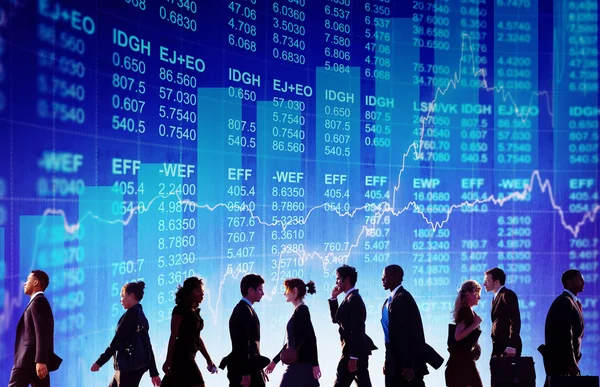In the fast-paced world of foreign exchange (Forex) trading, where currencies are traded around the clock, brokers play a pivotal role in facilitating access to the world’s largest financial market. With a daily volume surpassing $6 trillion, the Forex market beckons traders with promises of liquidity and opportunities for profit. In this article, we will delve into the critical role brokers play, explore different broker types, navigate the key criteria for selecting a broker, understand the fees involved, and underscore the importance of regulation and trader security. Join us as we lift the veil on the often misunderstood but essential world of Forex brokerage.
Unveiling the Forex Brokerage Realm

The realm of Forex brokers is vast and varied, comprising numerous institutions and agents who provide platforms for traders to access currency markets. Forex brokers act as intermediaries, connecting retail traders and institutional clients with the enormous network of banks and financial entities that make up the interbank currency market. They enable transactions, provide leverage, and offer various tools and services to assist traders in making informed decisions. Brokers can range from large multinational corporations to small, specialized firms, each offering different services and trading conditions.
Brokers: The Forex Market Catalysts

Brokers are the unsung heroes that fuel the dynamism of the Forex market. They serve as:
- Liquidity providers: By connecting traders to the massive pool of buyers and sellers in the interbank market, brokers ensure that trades can be executed quickly and efficiently.
- Access facilitators: Forex brokers provide platforms that offer real-time market data, charting tools, and news feeds, which are essential for traders to engage with the market.
- Risk managers: Through offering leverage, brokers enable traders to open larger positions than their capital would ordinarily allow, thereby amplifying potential profits as well as risks.
- Educators: Many brokers offer educational resources and customer support to help traders understand market dynamics and improve their trading skills.
- Innovators: Brokers constantly develop new tools and services to improve the trading experience, such as mobile trading apps and automated trading systems.
- Regulatory adherents: Reputable brokers abide by stringent financial regulations designed to protect traders and ensure fair trading practices.
Decoding Broker Types in Forex Trade

Forex brokers can be broadly classified into two main types:
- Dealing Desk (DD) brokers, also known as market makers, provide liquidity by taking the opposite side of a trader’s position. They often offer fixed spreads and have more control over the prices they quote.
- No Dealing Desk (NDD) brokers provide direct access to the interbank market. NDD brokers can be further categorized into:
- STP (Straight Through Processing) brokers that pass orders directly to liquidity providers.
- ECN (Electronic Communication Network) brokers that match trades between market participants.
Choosing the right type depends on a trader’s strategy and preference for trade execution and transparency.
Navigating Broker Selection Criteria

Selecting the right Forex broker is critical for trading success. Here are some key criteria to consider:
- Regulatory compliance: Ensure the broker is regulated by a reputable authority.
- Trading platform: Look for platforms that are stable, user-friendly, and equipped with the necessary analytical tools.
- Account offerings: Assess leverage, margin requirements, account types, and minimum deposit requirements.
- Customer service: A broker should offer responsive and knowledgeable support.
- Execution speed: Fast execution can mean the difference between profit and loss.
- Reputation: Read reviews and check the broker’s history and track record.
Understanding Broker Fees & Spreads

Forex brokers make money through fees and spreads:
- Commission-based: Some brokers charge a commission per trade.
- Spread-based: Brokers may also make money from the spread, which is the difference between the bid and ask prices of a currency pair.
It’s important for traders to understand how these charges can affect their trading profitability and to compare the fee structures of different brokers.
Broker Regulation & Trader Security

Regulation is a crucial aspect of the Forex brokerage industry. Regulatory bodies such as the UK’s Financial Conduct Authority (FCA) and the US’s Commodity Futures Trading Commission (CFTC) set standards that brokers must adhere to, which include:
- Capital requirements: To ensure financial stability.
- Segregation of funds: Client funds must be kept separate from the broker’s operating funds.
- Anti-money laundering (AML) measures: Brokers must have procedures in place to prevent financial crimes.
- Consumer protection: Offering fair dispute resolution and protection from broker insolvency.
A well-regulated broker affords traders peace of mind and a safer trading environment.
Comparison Table: Dealing Desk vs. No Dealing Desk Brokers
| Feature | Dealing Desk Brokers (DD) | No Dealing Desk Brokers (NDD) |
|---|---|---|
| Execution | Brokers take the other side | Direct to liquidity providers |
| Spreads | Fixed | Variable |
| Conflict of Interest | Potential | Reduced |
| Price Manipulation | Possible | Less likely |
| Anonymity | No | Yes |
| Suitable for | Beginners and small traders | Experienced and large traders |
The role of Forex brokers is crucial in enabling traders to participate in the vast and complex world of currency trading. From the types of brokers available to the fees they charge, it’s evident that a broker’s characteristics and regulatory adherence can significantly impact a trader’s experience and success. As traders continue to navigate the intricacies of the Forex market, understanding the nuances of brokerage services remains a cornerstone of a well-informed trading strategy. Through careful selection and continued education, traders can partner with brokers that not only provide access to the market but also align with their individual trading goals and values.




